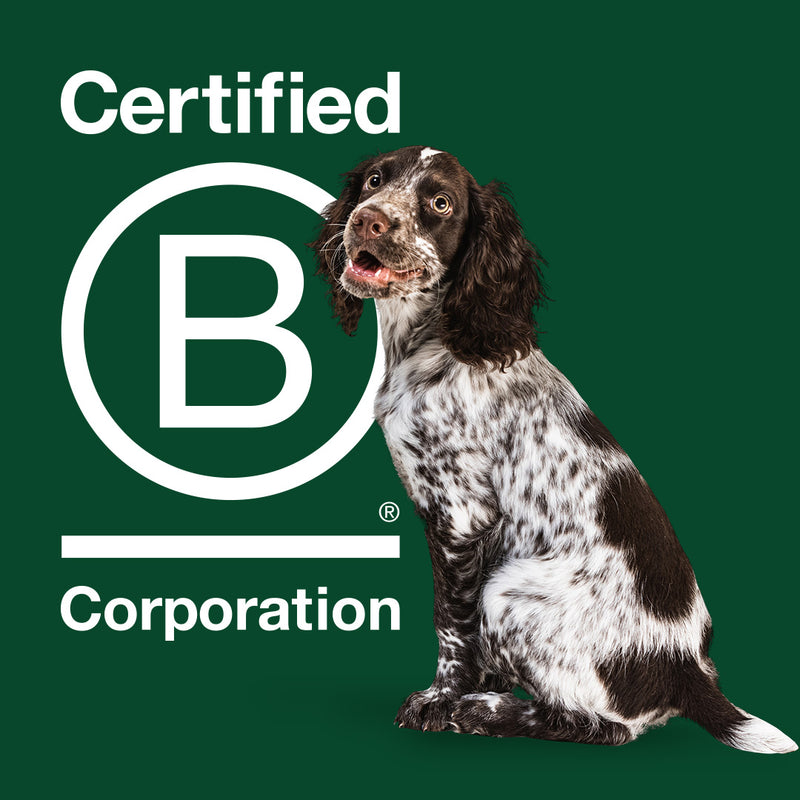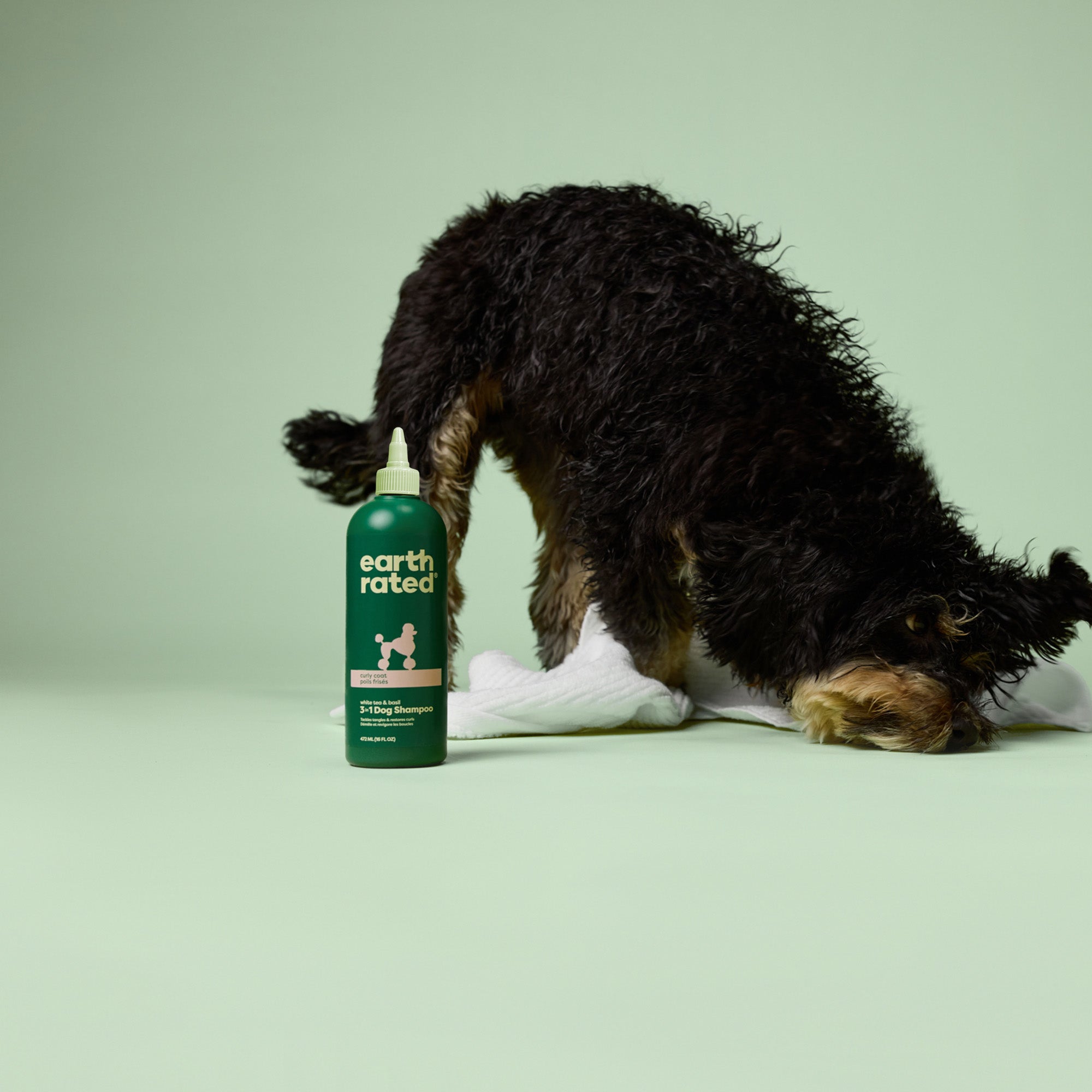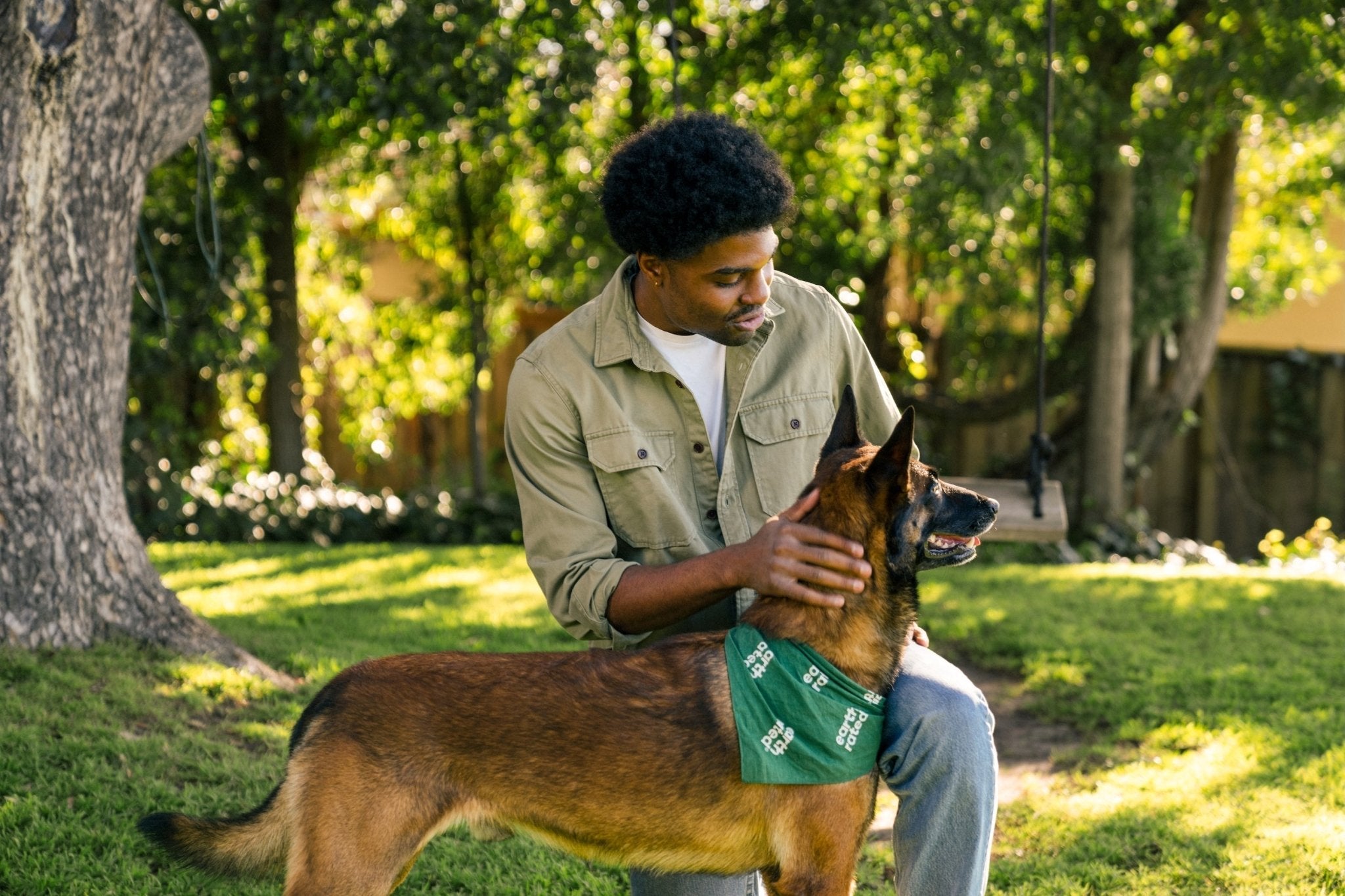Is your pup struggling with dry skin? Dry skin is a common complaint amongst many dogs. Giulia D'Ignazio, a groomer and owner of Brandy’s Canine Grooming, notes that the two most common causes of dog dry skin are nutrition and allergies.
Lots of dogs have dry skin with only minor issues. But some dogs do have worse symptoms than others. Some dogs may lick and scratch to the point of breaking skin which can lead to skin infections.
Luckily, proper grooming and nutrition can help reduce the severity of dry skin. Keep reading to learn more about spotting the signs and how to soothe your dog’s dry skin at home.
Understanding Dry Skin in Dogs
7 Common Causes of Dry Skin
Our pets tend to suffer from dry skin for the same reasons we do. Dry skin can also cause similar problems, such as itchiness.
The most common causes of dry skin in dogs include:
- Diet: What your dog eats directly affects their health. Giulia notes, “Proper nutrients, proper oils, and supplements can lead to a healthy skin & coat.
- Allergies: A dog’s allergies can also lead to dry, itchy skin, even when those allergies are due to something the dog ate.
- Parasites: Fleas and mites can irritate your dog’s skin and make their skin itchy and dry. Dogs can also be allergic to fleas, leading to severe itchiness.
- Environmental Conditions: The same dry air that gives us dry skin can cause our dogs to suffer from dry skin, too! Even excessive exposure to wind can contribute to dry skin in dogs.
- Over-bathing: Frequent baths with harsh shampoos can strip the natural oils from your dog’s coat which can lead to their skin drying out.
- Dehydration: Just like us, not having enough water intake can cause dry skin in dogs.
- Health Problems: Certain health problems such as hypothyroidism can also cause dry, scaly skin.
Symptoms to Look Out For
Dry skin in dogs can be persistent and often comes with four classic symptoms:
Home Remedies for Dog Dry Skin
While a trip to the vet is sometimes necessary, there are several home remedies you can try to soothe your dog’s dry skin. Let’s take a look at some of the easiest solutions:
Dietary Adjustments
What your dog eats directly contributes to their skin health. To improve your dog’s dry skin, Giulia recommends adding coconut oil, salmon oil, or olive oil to your dog’s diet. You can do this by pouring a small amount of oil directly on their normal kibble.
Start with a fairly small amount, as oils can upset your dog’s stomach when fed in excess, especially if your dog isn’t used to it. You can increase the amount of added fatty acids as your dog adjusts!
In some cases, you may want to switch foods completely. Many high-quality dog food formulations for sensitive skin contain ingredients like essential fatty acids, which can support skin health.

Moisturizing Treatments
Some natural DIY moisturizers can help temporarily relieve your dog’s dry skin. But it’s important that your dog’s underlying problem is solved, too. Otherwise, their dry skin will continue.
Here are the best moisturizing treatments:
- Coconut Oil: Apply a small amount of virgin coconut oil directly to your dog's dry patches. This natural oil has moisturizing and anti-inflammatory properties.
- Fish Oil: Drizzle a spoonful of fish oil over your dog's food. It will boost their skin health, and the fishy flavor might even make mealtime more exciting!
- Oatmeal Baths: Oatmeal has long been known for its soothing properties. Grind oatmeal into a fine powder and add it to your dog's lukewarm bathwater. Let the dog soak for 10-15 minutes, then rinse thoroughly and pat dry.
Regular Grooming
Brushing your dog regularly helps distribute the natural oils in their fur, which works as a natural skin moisturizer. Even if your dog doesn’t shed much, brushing regularly can be helpful, and can be a nice bonding experience too!
Using shampoos with gentle formulations that are free from harsh chemicals like Earth Rated’s grooming products can also help improve your dog’s dry skin.

For dogs with environmental allergies, you can wipe them down with dog grooming wipes after each outside excursion to help combat the irritation from allergens.
Other options include using a no-rinse dog shampoo. This is a game changer for dogs who love to get their paws dirty at every chance they get!
Hydration
Just like us, dogs need to stay hydrated to maintain healthy skin. Ensure your dog has constant access to fresh, clean water throughout the day. If your dog has trouble staying hydrated, take a trip to the vet as they may have an underlying health condition that needs checking out.
Preventing Dry Skin in Dogs
Regular Vet Check-Ups
Many underlying health conditions can lead to dry skin. It’s important that you keep your dog healthy with regular vet checkups. These can help you catch potential health problems early before they become major problems and cause severe dry skin.
Prevention is often much easier than treatment later on!
Environmental Control
Dry winter air and blasting heaters can wreak havoc on everyone’s skin, including our dogs! If your heater is running all winter, consider adding a humidifier to help add moisture to the air. Even if this isn’t the direct cause of your dog’s problems, it can help.
Consistent Grooming Routine
Brushing your dog regularly isn't just about keeping fur tumbleweeds at bay. A good brushing session helps distribute natural oils throughout their fur, acting like a built-in moisturizer.
Establishing a consistent grooming routine with Earth Rated products can help you improve your pup’s coat health and combat their dry skin. From grooming wipes that remove dirt to no-rinse options that avoid over-bathing, having a go-to routine can help you stay on top of your dog’s dry skin.

When to See a Veterinarian
You can do a lot for your dog’s dry skin at home. But, sometimes, our dogs need vet attention. Here’s how to know when it’s time to call your local vet.
Recognizing Serious Skin Issues
Sure, a little scratching here and there is normal. But if your dog is scratching themselves to the point of breaking skin, it’s a sign that something more serious is going on. Here are some signs that your dog is really struggling:
Potential Treatments
Vets have many ways to combat dog dry skin. Here are a few possibilities your vet may explore:
Remember, early treatment always works better than waiting. When in doubt, it’s best to seek out veterinary help, especially if you’ve already tried a few at-home solutions.
Final Thoughts
Dog dry skin isn’t often serious, but it is a problem that needs to be tackled! Understanding what causes dry skin is the first step to fixing the problem. Dry skin is a symptom, not necessarily an illness in its own right. To cure it completely, the underlying problem needs to be addressed.
By implementing a regular grooming routine with gentle products and maintaining a watchful eye for signs of trouble, you can nip dry skin in the bud and keep those cuddles itch-free. And, of course, if the scratching is persistent, don’t hesitate to call the vet!
Try out our no-rinse solutions! Gentle and effective f for all coat types. Combat odor and hydrate your dog's skin and coat - without the need for a bath.












